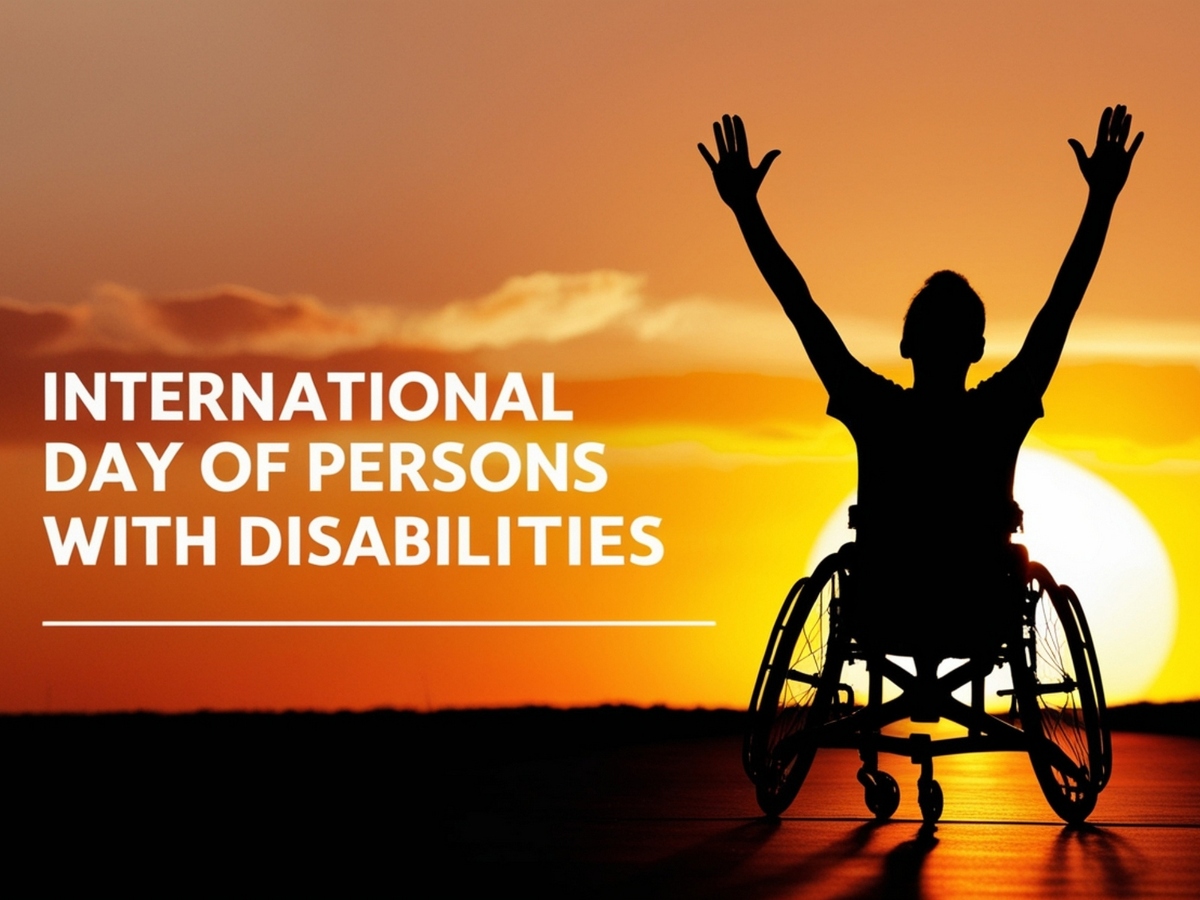
The Significance of Inclusion: Celebrating International Day of Persons with Disabilities
Inclusion & Support: Celebrating International Day of Disabilities
The International Day of Persons with Disabilities (IDPD), observed annually on December 3rd, is a reminder of the importance of creating an inclusive world that respects and celebrates diversity. This year, Sunshine Bone and Joint Institute (SBJI) joins the global community in raising awareness about the challenges faced by persons with disabilities (PWDs) and the essential role of inclusion in fostering equality.
At SBJI, we recognize the resilience of individuals with disabilities and their ability to lead fulfilling lives when provided with adequate support and opportunities. Explore the importance of inclusion for persons with disabilities. Learn how SBJI provides accessible care and celebrates diversity this International Day of Disabilities.
Why Inclusion Matters
Inclusion is more than accessibility; it’s about ensuring that individuals with disabilities feel valued, respected, and empowered to participate fully in society. This involves creating opportunities in education, employment, healthcare, and social spaces while addressing stigmas and stereotypes.
For persons with disabilities, inclusion fosters independence, boosts confidence, and enhances quality of life. It also benefits society as a whole by promoting diversity, innovation, and community collaboration. Research consistently shows that inclusive environments improve overall outcomes for everyone involved, reinforcing the need for collective action.
Challenges Faced by Persons with Disabilities
While strides have been made in recognizing the rights of PWDs, significant barriers still exist. These include:
- Physical Barriers: Lack of accessible infrastructure, such as ramps, elevators, and modified workspaces, can make mobility and participation difficult for PWDs.
- Social Stigma: Misconceptions about disabilities often result in marginalization, limiting opportunities for education, employment, and social inclusion.
- Healthcare Disparities: Many PWDs face difficulties accessing specialized medical care and rehabilitation services. This is particularly true in cases where disabilities affect mobility or require advanced orthopedic support.
- Economic Inequality: Unemployment and limited access to adaptive technology often result in financial hardships for individuals and families managing disabilities.
Addressing these challenges requires a holistic approach that includes policy changes, community support, and innovation in healthcare and rehabilitation.
The Role of Healthcare Providers
Healthcare providers play a pivotal role in empowering persons with disabilities. At SBJI, we are dedicated to offering comprehensive and inclusive care for patients with orthopedic and musculoskeletal conditions, ensuring accessibility and dignity in every interaction.
- Advanced Rehabilitation Services
Rehabilitation is essential for improving mobility and independence for PWDs. Our team of experts provides personalized care plans, including physical therapy, assistive devices, and advanced surgical options, to enhance the quality of life for our patients.
- Focus on Accessibility
SBJI prioritizes accessibility within our facilities. From wheelchair-friendly premises to assistive technologies, we aim to create a supportive environment that accommodates all patients.
- Patient-Centered Care
We believe in treating the person, not just the condition. Our approach includes emotional support, clear communication, and collaboration with patients and their families to develop effective treatment plans tailored to their needs.
- Innovation in Orthopedic Care
Advancements in orthopedic care, such as prosthetics, robotic-assisted surgery, and minimally invasive procedures, are transforming lives. By embracing innovation, SBJI ensures that patients with disabilities can achieve their fullest potential.
How Communities Can Promote Inclusion
While healthcare is vital, inclusion is a collective effort. Communities can play a significant role in ensuring that persons with disabilities feel seen and supported.
- Education and Awareness: Campaigns and workshops can help dispel myths about disabilities and foster empathy among the general public.
- Workplace Inclusion: Employers can create adaptive workspaces, provide equal opportunities, and encourage diversity hiring practices.
- Accessible Infrastructure: Governments and organizations can prioritize the development of accessible public spaces, transportation, and digital platforms.
- Support Networks: Peer support groups, mentorship programs, and inclusive community events can help individuals with disabilities build confidence and social connections.
A Commitment to a More Inclusive Future
The International Day of Persons with Disabilities is an opportunity to reflect on our progress and the work still needed to create a truly inclusive world. At SBJI, we remain committed to empowering individuals with disabilities through cutting-edge orthopedic care and unwavering support.
By combining community efforts, healthcare innovation, and a shift in societal attitudes, we can break down barriers and ensure that everyone has the opportunity to thrive. Let us celebrate diversity, promote inclusion, and build a future where no one is left behind.
This International Day of Persons with Disabilities, let’s choose inclusion—not as an option, but as a way forward.
Frequently Asked Questions
IDPD aims to promote awareness of the challenges faced by persons with disabilities, celebrate their achievements, and advocate for inclusive policies and practices globally.
Communities can promote inclusivity by improving accessibility, fostering awareness, supporting diversity in schools and workplaces, and providing resources and support networks for persons with disabilities.
Healthcare providers play a critical role in improving the quality of life for persons with disabilities by offering accessible services, rehabilitation, assistive devices, and emotional support tailored to their needs.
Common barriers include physical challenges like inaccessible infrastructure, social stigma, limited access to education and employment, and disparities in healthcare services.
At SBJI, we provide accessible orthopedic care, advanced rehabilitation services, and cutting-edge innovations like prosthetics and robotic-assisted surgery to empower persons with disabilities and improve their mobility and independence.

